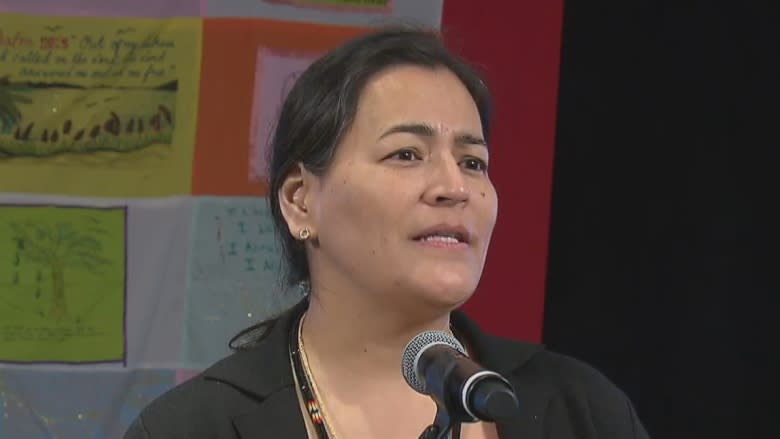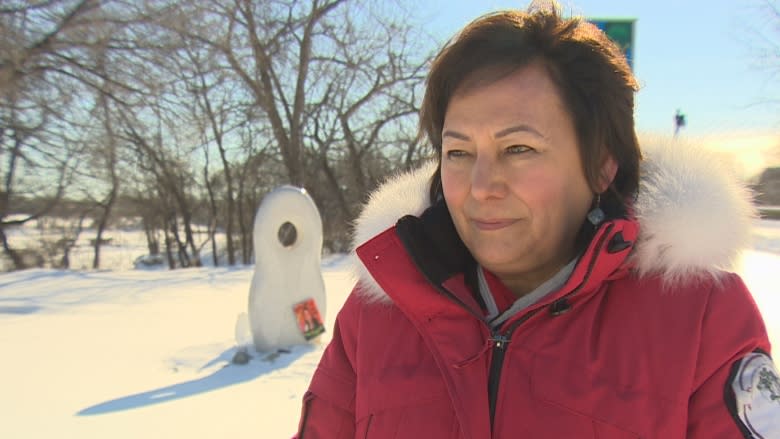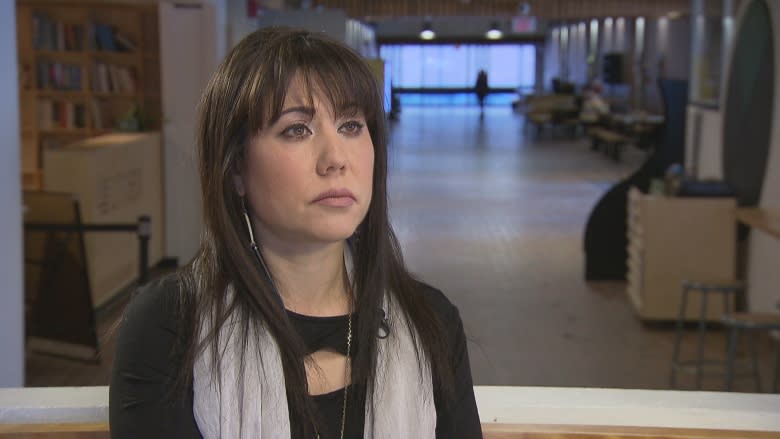'My heart will not let me walk away': MMIWG inquiry commissioner Michèle Audette to stay on
Michèle Audette, one of the four remaining commissioners on the national inquiry into murdered and missing Indigenous women, announced Tuesday she has decided to keep working with the inquiry despite her disappointment with the federal government's limited extension.
Earlier this month, Ottawa announced its decision to grant the inquiry a limited-time extension to its mandate.
The inquiry was originally scheduled to submit its report on Nov. 1 of this year and wrap up its operations by the end of December. It asked for an additional two years and an extra $50 million.
Instead, it got an extension for writing its final report to April 30, 2019, and an additional two months to wind down its operations by June 30, 2019.
At the time, Audette issued a statement saying she was gripped by a feeling of "incomprehension and deep disappointment" after Ottawa's decision and would contemplate her future with the inquiry.
In a statement issued Wednesday, Audette said she felt a profound duty to ensure the inquiry delivers on its mandate and resisted "resigning myself to accepting this government decision that limits the ability of the National Inquiry to gather evidence and uncover the truth about systemic causes of violence, and to support families and survivors."
"While I continue to feel deep disappointment in the government and regret that the final report will not be as comprehensive as it could have been, my heart will not let me walk away from my commitment."
'Best decision for families'
While many Indigenous advocates in Manitoba have said they aren't happy with what the commission has accomplished to date, Sandra DeLaronde, who co-chairs the Missing and Murdered Indigenous Women and Girls Coalition of Manitoba, says it is a good choice for Audette to stay on.
"It's the best decision for families," the co-chairwoman said.
The national inquiry has been mired with controversy from its start, which has been "very difficult" on family members and survivors, said DeLaronde.
But just as hundreds of others who have come forward, and thousands more who may have not, Audette has herself lost family members so "she understands the struggle," DeLaronde said.
"Because of that … she's the heart of an otherwise legal and formal process," DeLaronde said.
She said she appreciates the critical voice and community-based perspective that Audette brings to the table.
When asked if she is the right person for job, DeLaronde said that the commissioner is the "only person for this role" given the six-month deadline.
"Her voice is important in completing the work."
'Ground zero'
DeLaronde says that work is required.
"As Indigenous women, it was really our one chance to tell Canada our story," she said.
But when asked if she remains confident in the national inquiry achieving its overall objectives, she replied, "well, we're hopeful," adding she hopes the commission will "come up with new and appropriate recommendations, but more importantly that governments — provincial and federal governments — can act now on what is already known."
She calls Manitoba "ground zero" for the issue of missing and murdered Indigenous women and girls, dating back to the province's Aboriginal Justice Inquiry, which recommended changes in its final 1991 report that have still not been implemented in ways that are measurable by affected communities, DeLaronde said.
"And that's part of the problem."
Dwindling confidence
Many leaders and family members have called for a "hard reset" of the commission in the past.
"I have lost pretty much all confidence in the inquiry at this point," said Leah Gazan, a University of Winnipeg faculty member and advocate for Indigenous women and girls.
She said the inquiry was intended to provide clear and well-researched calls to action.
"I don't think we need an inquiry to tell us that the systems are designed, perpetuated and supported by the federal government in a manner that violates the fundamental human rights of Indigenous people."
Gazan said she believes the inquiry's issues stem from previous leadership.
"I think it's bigger than [Audette]."
The inquiry has faced a high turnover in staff, including the departures of senior staff and commissioner Marilyn Poitras in 2017.
The inquiry is currently gathering testimony from government officials, police forces and experts.




